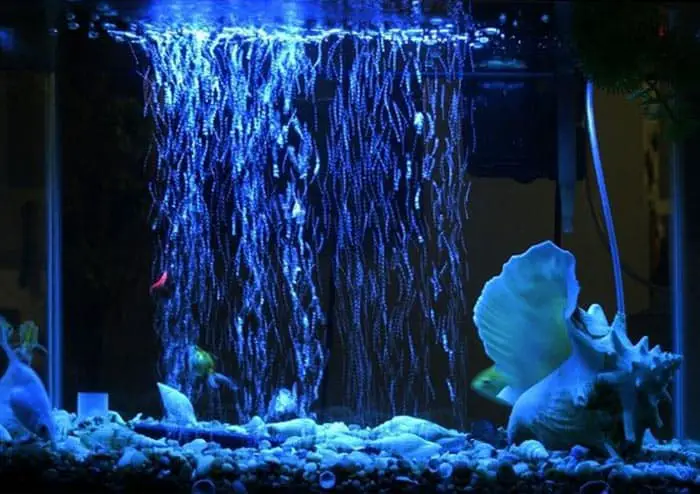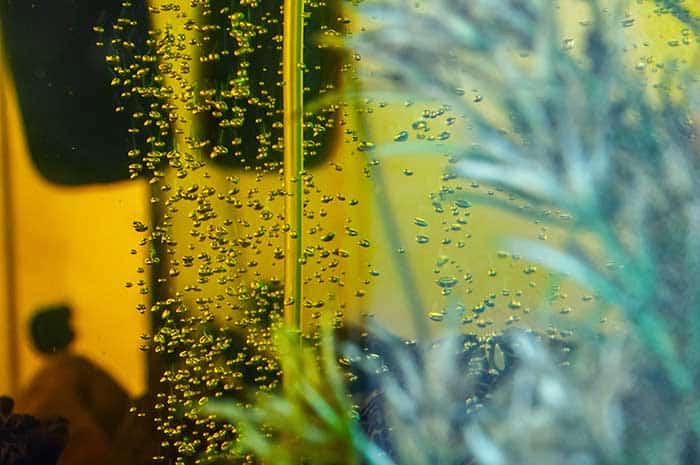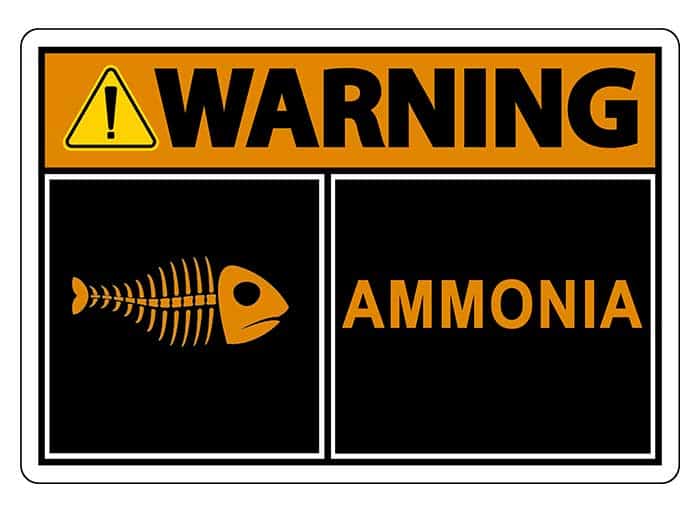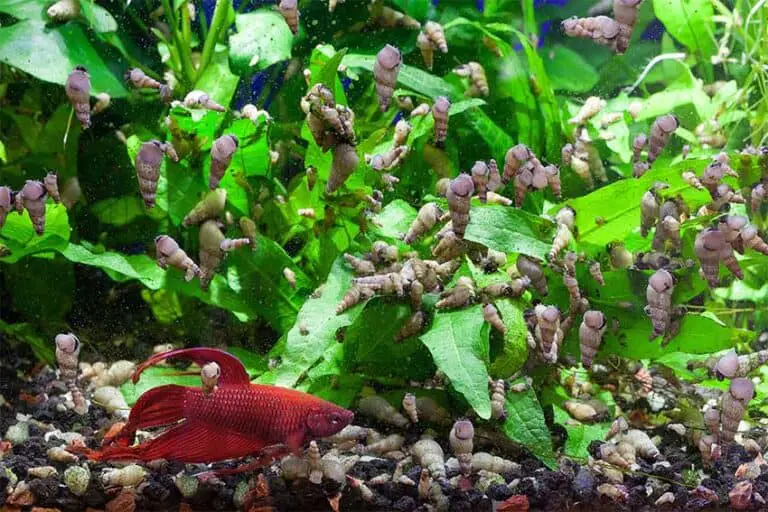What Happens If Alkalinity Rises Too High In Aquarium Water
Keeping fish is fun and rewarding, but aquariums require regular cleaning, and you must maintain water parameters for healthy fish. One element regularly overlooked is the alkalinity level. I wrote this short article to explain what happens if alkalinity rises too high in aquarium water.
High alkalinity levels can negatively affect your fish, plants, and equipment in freshwater and saltwater aquariums. High alkalinity water can cause mineral deposits, allow water to become too alkaline, and impact biological filtration, causing ammonia to become highly toxic.
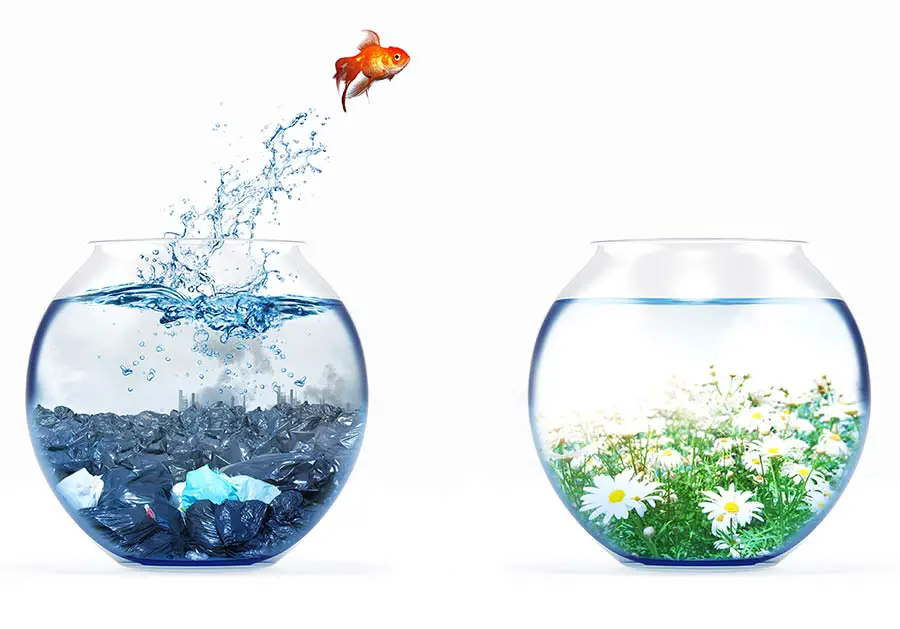
I have briefly covered some of the potential problems caused when alkalinity becomes too high, so let’s take a closer look at what happens if alkalinity rises too high in aquarium water and the reasons why.
Understanding Alkalinity
At a basic level, alkalinity measures carbonates and bicarbonates (minerals) in the water. Although it isn’t directly related to pH, a high alkalinity level can cause the pH of aquarium water to rise too quickly if left unchecked.
When the pH rises, the water becomes alkaline (or basic) as opposed to acidic when the pH falls. Maintaining the perfect alkalinity level creates a stabilizing (buffering) effect on the pH by absorbing enough acids to prevent the water from becoming acidic.
On the flip side, too much alkalinity absorbs all of the acids in the water and allows the pH to climb, becoming alkaline. Most fish tanks do best at a neutral to slightly alkaline pH.
You shouldn’t overlook the importance of providing the correct alkalinity level in a fish tank, so you should learn everything you can about alkalinity or read my guide on what is alkalinity in an aquarium.
Effects Of High Alkalinity On Fish
Fish need a moderate level of alkalinity for good health. Alkalinity provides the minerals that help fish digest food and build strong bones.
Unfortunately, if alkalinity rises too high in your aquarium, it can affect your fish in a number of different ways.
Gill Damage
Too much alkalinity will harden the water, which can result in gill damage. When this happens, fish can’t get enough oxygen from the water, leading to stress, weakness, and eventually death.
Skin And Scale Damage
Hard, alkaline water can also damage the delicate mucus membrane on a fish’s body, causing irritation and allowing bacterial infections to take hold more easily.
Stress
Another common problem when alkalinity rises too high is that the pH can change rapidly. Although most fish can adapt to different alkalinity and pH levels, most fish can’t tolerate sudden changes and become stressed.
Stress in fish can lead to several health problems, such as increased illness and infections.
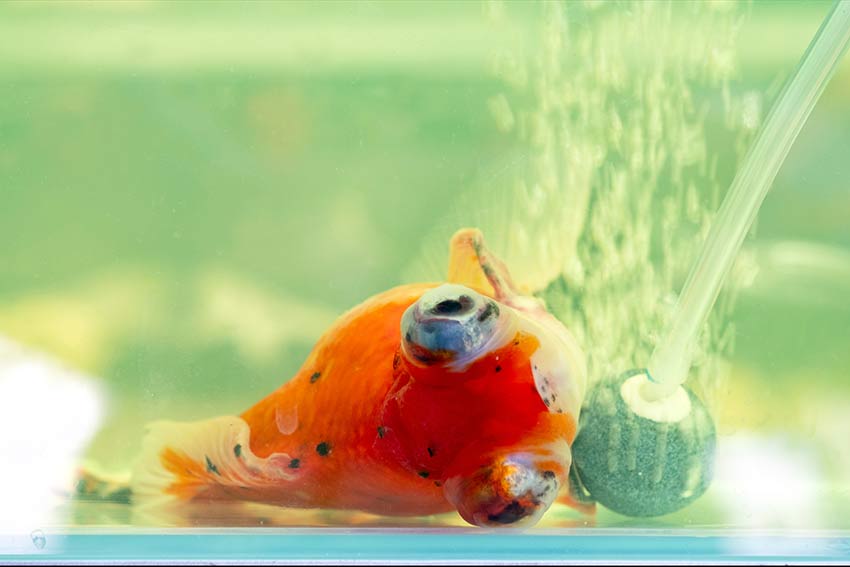
An Increase In Toxic Ammonia
An increase in alkalinity can interfere with your tank’s nitrogen cycle or biological filtration.
Fish waste, rotting food, and rotting plant matter all produce ammonia which is dealt with quickly by the beneficial bacteria in your tank.
High alkalinity levels make it difficult for the beneficial bacteria in your tank to grow, making the ammonia highly toxic and dangerous to your fish’s health.
Fish can suffer from ammonia burns on their skin and gills, resulting in ragged, damaged fins and affecting their ability to breathe.
Affects On Tank And Equipment
It’s not only fish that suffer when alkalinity rises too high, as the tank and equipment can also be affected.
The high mineral content of alkaline water can cause hard water stains on the tank glass, and calcium deposits can build up in the filter, pump, or around the heater, affecting its functionality.
The excess minerals can also cause water to become cloudy, making it difficult to see your fish. Cloudy water by itself won’t hurt your fish, but it will make your tank look dull.
Reef Tanks
Alkalinity is essential in all aquariums, but even more so in a reef tank. Reef tanks often contain living corals which are very sensitive to the water chemistry, so pH levels need to be checked more regularly and kept stable.
Calcium is also vital for coral growth, so higher alkalinity levels are acceptable in a saltwater environment. Problems occur when alkalinity is pushed too high.
High alkalinity in a reef tank can cause damage to the tips of corals, often described as burns. This damage happens because the rise in alkalinity speeds up the process of photosynthesis, leading to faster skeletal growth, but the tissue of the coral cannot keep up.
It is also thought that when alkalinity levels increase too much, it reduces the availability or absorption of calcium, leading to stunted growth and other health issues.
Check out the Youtube video I found below from MA Fish Guy.
Lowering Alkalinity
If you allow your alkalinity to rise too high, you need to lower it as quickly as possible. To lower alkalinity, you need to reduce the number of carbonates and bicarbonates in the water.
The easiest way to lower alkalinity is to remove some water and add some softer water to dilute the mineral content. Another popular method is to use a reverse osmosis filter which pushes water through a membrane to filter out the minute mineral particles.
I have written an article explaining how to lower alkalinity should you need to.
Conclusion
A good alkalinity level is essential in an aquarium for several reasons, but allowing it to rise too high can trigger several related problems, with pH being the most serious.
Balance is crucial, and understanding how water parameters can affect each other makes it much easier to control them.



